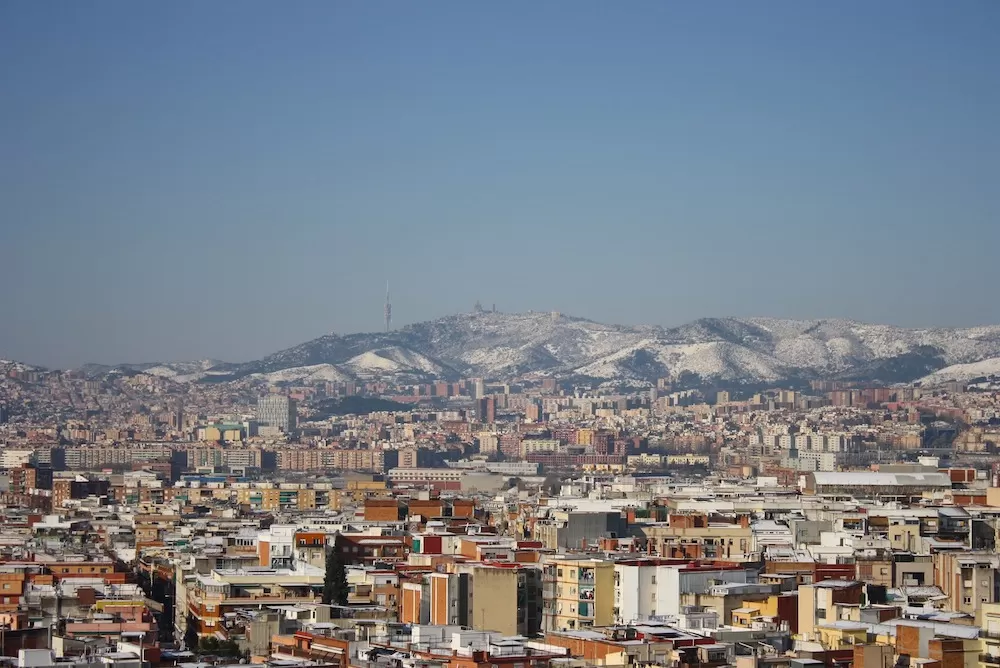
How to Move to Barcelona
First things first, how do you move to Barcelona, exactly? Can you just pack your things and go here without a second thought? Well, not exactly. It all depends on your current and specific situation. If you're already a citizen or legal resident of Spain, you'll find the process much easier. The same goes for citizens/residents of other EU countries too, albeit with a few additions to the process. But if you're coming from a non-EU country, your best bet is to get a Spanish Residency Visa first.
Barcelona Overview
Barcelona is the capital city of the Catalonia region in northeastern Spain. Though it's technically part of Spain, Catalonia operates as an autonomous community, oftentimes even going head-to-head against the Spanish government. The region even has its own language, Catalan, which is widely spoken in Barcelona. But people in the city speak Spanish too, which proves that the region, especially the city, is still very much part of Spain. Barcelona is also the second-biggest city in the country, with an estimated population of around 5.687 million residents.
Why Visit Barcelona?
Barcelona is the artistic heart of Spain, From Antoni Gaudí to Pablo Picasso, various legendary artists have worked and lived here. Add to that the city's fascinating history, which dates all the way back to the Neolithic Age, and you have more than enough reasons to visit the Catalan capital. Even if you're not an art or history buff, you'd still want to check the city out for its lively nightlife scene, its famous (or infamous to some) openly liberal society, its strong LGBTQ+ community, its chic fashion scene, its prominent culinary reputation, and more.
Why is Barcelona Important to Spain?
There are many reasons why Barcelona is important to Spain. On a fundamental level, Barcelona is a Mediterranean port and commercial center, representing a huge percentage of the country's overall tourism. As a major city, it also serves as a major business and financial hub. Lots of expats who have moved to Spain now live in Barcelona and work there, further contributing to the Spanish economy.
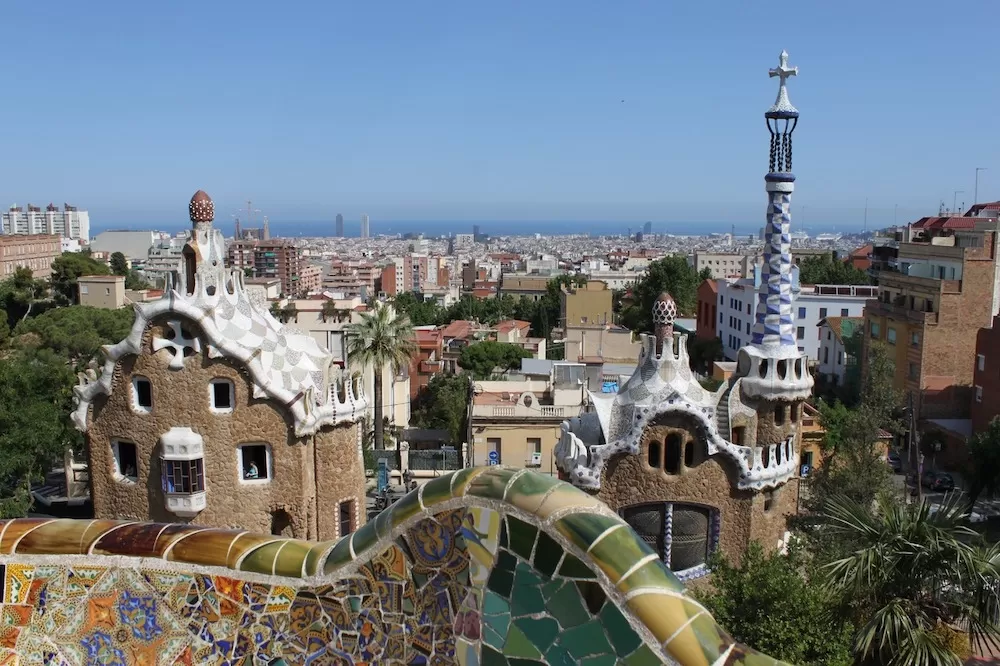
Visa in Barcelona
As with any other destination, you need a few documents to get to Barcelona. Depending on where you're coming from, you might even need to get a visa just to enter Spain. Those who don't need a Visa in Barcelona include citizens and residents of Spain and other EU countries. Those eligible for the ETIAS Visa Waiver program also don't need a visa, within a certain period. Even if you are eligible for the program, relocating to Barcelona and becoming a resident of Spain will still require you to get a long-term visa.
Is a Visa Required for Barcelona, Spain?
As already mentioned, your need to get a visa to get to Barcelona depends on where you're coming from and your current status. Citizens and residents of Spain and other EU countries don't need a visa to enter the city. Those coming from non-EU countries, however, will need to get a Schengen Visa to visit Barcelona, especially as a tourist. With that said, staying in Barcelona for longer than three months will still require you to get any kind of Spanish Residency Visa. This applies to all non-Spanish citizens and residents, even if you come from another EU country.

Getting Around in Barcelona
As a major city, it's only natural that public transport in Barcelona is strong and stable. There are a multitude of systems you can use to get around the city, ranging from the underground metro system to buses and taxis above ground. The city also has a tram system, night buses, cable cars, and more.
How to Get Around Barcelona
With so many options available, you have no excuse to not get to where you need to be in Barcelona. You can take the underground metro, ride the bus, take a taxi, use the tram, or even rent a bike. With that said, there's no denying that navigating the city's public transport is easier said than done. There are a lot of options, sure, but they don't always guarantee that you'll have an easy commute or that you'll even reach your destination in time. One of your best bets to ensure a hassle-free commute is to get a Hola Barcelona card. It's the city's main travel pass that provides unlimited access to public transport within a specific period.
Is There Uber in Barcelona?
Another option to get around Barcelona? Use a transportation app. These programs let you book a ride from wherever you are and pay through a credit card or an online transfer. The most popular is Uber, which also operates in Barcelona. Wherever you may be and whatever time it is, you can just open the Uber app, put in your details, book a ride, and wait for it to come to you. Easy peasy!
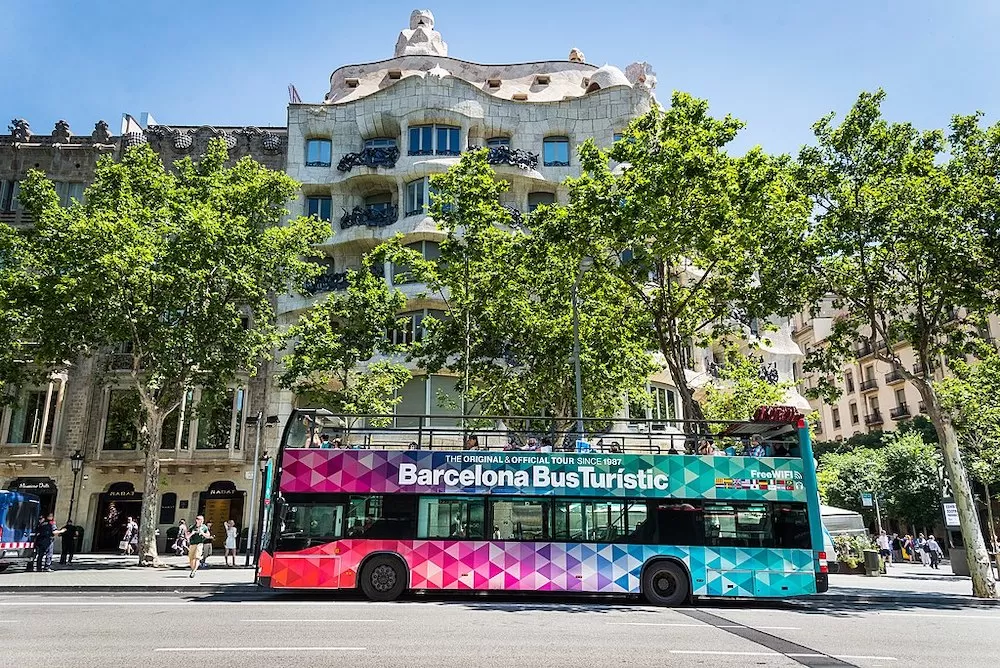
Where to Live in Barcelona
Barcelona's neighborhoods play a huge role in constantly boosting its tourism. They're pretty diverse, with each district having something unique and exciting to offer. There are areas full of street art, for example, that further prove the cultural heritage of the city. While other districts live things up with bustling commercial activity, solidifying the Catalan capital's place in the business world.
Where to Stay in Barcelona for the First Time
If it's your first time in Barcelona, especially as a tourist, you need to check out the Gothic Quarter, Eixample, and La Barceloneta. These are three of the most popular neighborhoods in the city, each with very specific charms that stand out against the rest. The Gothic Quarter, for instance, gives a peek into the city's history. Its Medieval look has stayed the same for centuries, making for quite a fascinating sight. Eixample, on the other hand, bursts with urban energy. Here is where you'll find the coolest hotspots, the best bars, the chicest boutiques, etc. And lastly, you can't explore Barcelona for the first time and not check out the coast of La Barceloneta. This is what makes the city such a Mediterranean marvel!
Where to Stay in Barcelona
As for where you ought to stay in Barcelona when you move here, keep Eixample Esquerra, Sant Gervasi - La Bonanova, El Born, Vila de Gracia, Sarria, and Sant Antoni in mind. Though these neighborhoods are all different from one another, what they all have in common is that they're largely residential. Some of them may be known for their museums and art galleries, some for their nightlife scenes, and others for their shopping districts, but they're still all some of the best places for local life. There are areas within these neighborhoods that offer exceptional housing, peaceful communities, and complete facilities.
Where to Stay in Barcelona on a Budget
Now, what if you're on a budget? Where do you stay then? Well, the cheapest places to stay in Barcelona include Sant Martí, Nou Barris, and Bon Pastor. You can find an apartment in these places that'll cost less than €1,000.00 a month. The homes in El Clot and Sant Antoni, on the other hand, are averagely priced. Though not the cheapest, they're far from the most expensive either. If you earn a good salary, you can maintain a fairly comfortable lifestyle in these neighborhoods.
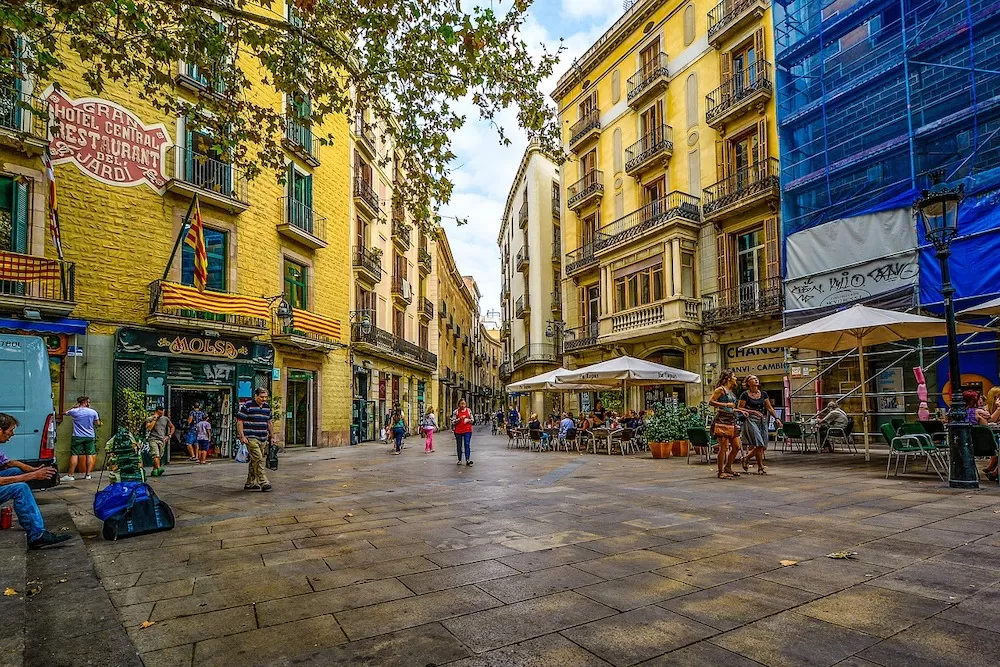
Living Costs in Barcelona
The unfortunate truth about the living costs in Barcelona is that they're mostly high. The average monthly net salary in the city is €1,829.75 and an adult spends an estimate of about €792.80 every month without rent. If that's not a high cost of living, then what is?
Is Barcelona Expensive?
Yes, it is. Even for tourists, they spend at least €85.00 to €215.00 a day. What more if they live here? Even if you were to avoid the luxury shopping districts, designer boutiques, and high-end Michelin-starred restaurants, you'd still pay a pretty penny to remain comfortable here.
Is It Expensive to Live in Barcelona?
Since Barcelona is an expensive city, it's only natural that it's also expensive to live here. Utility bills, for example, range from €119.00 to €282.33 per month. It's a far cry from the costs in other cities where you can still save a lot for these expenses. And when you rent an apartment in Barcelona, expect to pay more than €1,000.00 per month.
How Much Does It Cost to Live in Barcelona?
Specifically, the monthly rental fees in Barcelona range from €650.00 to €2,700.00. It all depends on how big your place is and its location. Multi-bedroom apartments near the city center tend to charge higher rents. Meanwhile, you can still score a one-bedroom place along the outskirts of Barcelona and still pay less than €1,000.00 per month for rent.
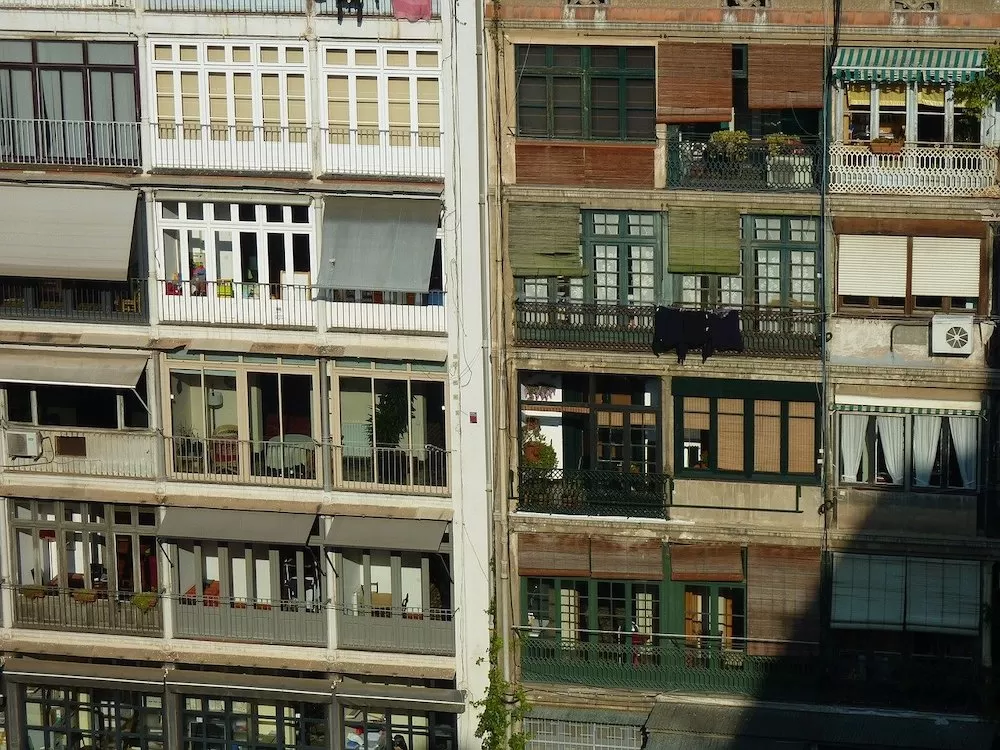
Employment in Barcelona
Typically, you'd only get to move to Barcelona—or anywhere else, for that matter!—if your work transferred you there. But on the off-chance that you relocated to the Catalan capital without a job, there's no need to fret. Since Barcelona is a major city and an important business hub, not to mention a fairly stable Spanish job market to boot, it's not that difficult to land employment here. It may be challenging, sure, but it's not impossible!
Can I Work in Barcelona?
First things first, let's clear up whether you actually can work in Barcelona (or in Spain in general) legally. If you're already an EU citizen, you don't need any sort of paperwork to let you find employment in the city apart from the standard residence card. If you come from a non-EU country, however, you'll have to obtain a work permit on top of the residence card, a long-term visa, and more. Once you have all of that, you can start looking for a job in Spain, specifically in Barcelona.
How to Get a Job in Spain
There are tons of ways you can get a job in Barcelona. First, you can go online and look at the various job portals. There are both local and international websites that feature posts from local companies based in the Catalan capital. There's also the national job portal, Servicio Público de Empleo Estatal, which remains popular among job-seekers in the country. Second, you can go to a recruitment agency and seek their professional help. They'll match you up with the right job and company that fits your skills, abilities, and even needs. And if all else fails, word of mouth is just as effective. This is also why it's important to build a large network when you move to Barcelona.

Education in Barcelona
As a whole, Spain has a great educational system. There's fairly easy access to quality institutions and they're also pretty open to adopting international curriculum in various schools. It's no wonder that there are many great schools in Barcelona. There are prestigious universities that you can enroll in if you want to continue your studies (this will also help you move to the city a lot easier) as well as international schools you can send your kids to.
Best Schools in Barcelona
Among the most prominent universities in Barcelona include Universitat de Barcelona, Pompeu Fabra University, Universitat Politècnica de Catalunya, and the Esade Barcelona Pedralbes Campus. If you plan to pursue a master's degree, you'd do well to check these institutions out. For the younger ones, the best international schools in Barcelona include the Agora International School of Barcelona, the Benjamin Franklin International School, and the ES International School, among many others. What's great about them is that the language barrier won't pose as big of a problem as it would in public schools in the city.

Healthcare in Barcelona
Did you know that Spain is one of the countries with the best medical tourism? The Medical Tourism Index ranked the Mediterranean country pretty high in their ranking, citing its excellent healthcare services, commendable national system, exceptional healthcare institutions, and more. Even the country's natural wonders and exciting attractions didn't escape their notice. But to focus more on Spain's healthcare, which operates on a universal system, it truly is one of the best in the world.
Does Spain Have Good Healthcare?
Not only is it good, but Spain's healthcare is one of the best in the world! First of all, it's free. Since Spain offers universal healthcare, your social contributions are what pays for your medical bills. Second, there are a lot of top-notch doctors, nurses, and other medical professionals in the country too. You're in good hands in Spain, that's for sure. Third, there are the stand-out healthcare institutions. Check out the finest hospitals in Barcelona, for example. The likes of Centro Médico Teknon and Hospital Sant Joan de Déu Barcelona, among many others, continue to pack in prominence in the medical field.

Safety in Barcelona
Perhaps the only that can bring Barcelona down as the ideal new hometown is its safety issue. The crime rates in Barcelona aren't exactly high, but they're not low either. Its general crime rate is 55.98%, which is only moderate. That alone wouldn't cause such alarm if not for the fact that its rate of increasing crimes is 76.35%, a high rate. So while the level of crime in Barcelona now isn't too bad, there's no telling how it may get worse over time.
Is Barcelona Safe?
Do these figures mean that Barcelona isn't a safe city? Not necessarily! The city's safety rate enjoys a high 68.98% during the day, a huge win for the Catalan capital. And though it falls to a moderate 42.78% at night, it's still not bad at all. It just means that you need to be more careful if you ever go out at night.

Taxes in Barcelona
Moving to Barcelona means you'll also have to start paying taxes in Spain. All citizens and residents of the country are required to pay taxes. Moreover, even before you settle down in the Catalan capital, there's a chance you're already required to pay taxes here. If you spend (specifically work) around 183 days (approximately six months) of the year in Spain, then you become a tax resident. This gives the government the right to take part of your income as social contributions. Such is the Spanish tax system.
How Much Tax Do You Pay in Spain?
Your income tax rate depends on how much you earn. The higher your income, the higher your tax rate. The lowest rate is 19%, which applies to those who earn about €12,450.00 or less per year. The highest rate is 45%, which applies to those who earn more than €60,000.00 per year. Non-residents, on the other hand, have to pay a flat income tax rate of 24%, regardless of how much they earn.

Relocation Tips in Barcelona
To end this relocation guide, here are a few relocation tips worth remembering:
Open a local bank account in Spain (of course, preferably in Barcelona).
Get a local SIM card for your phone.
Memorize the routes you'll take every day
Buy a travel pass ASAP.
Get to know locals and build a solid network.
Stick to commuting if you want to avoid traffic jams
Avoid going out alone at night.
Don't stay near nightlife districts if you want a peaceful life in Barcelona
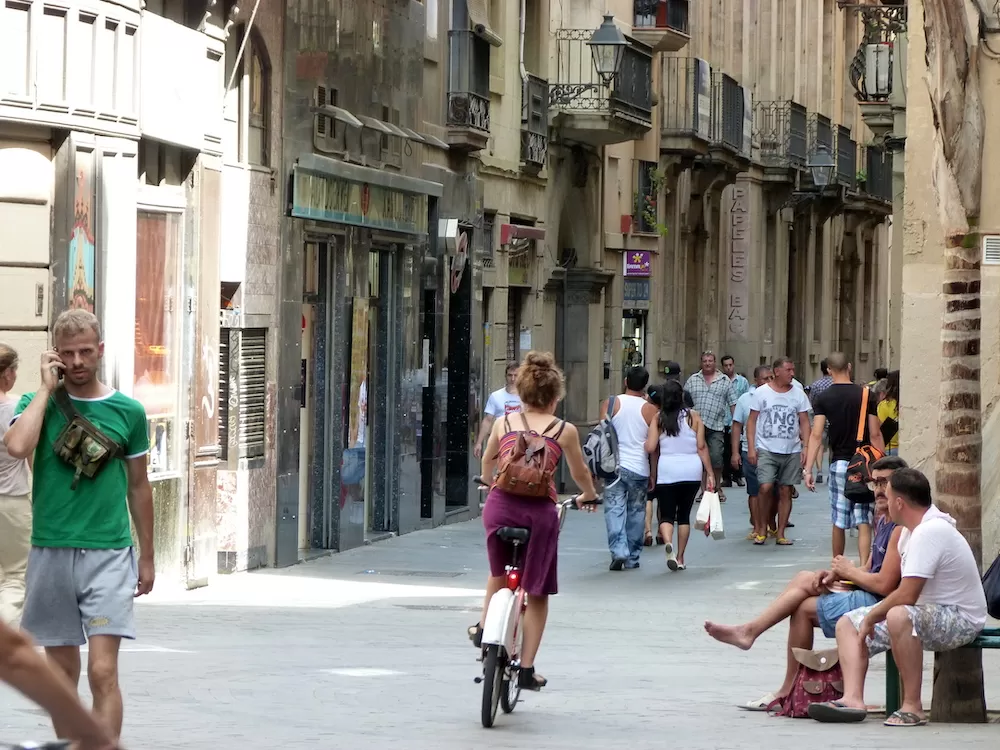
Do you know how to move to Barcelona? Will you know what to do when the time comes? If not, there's no need to worry! This relocation guide can show you the ropes and help you with all the basics.